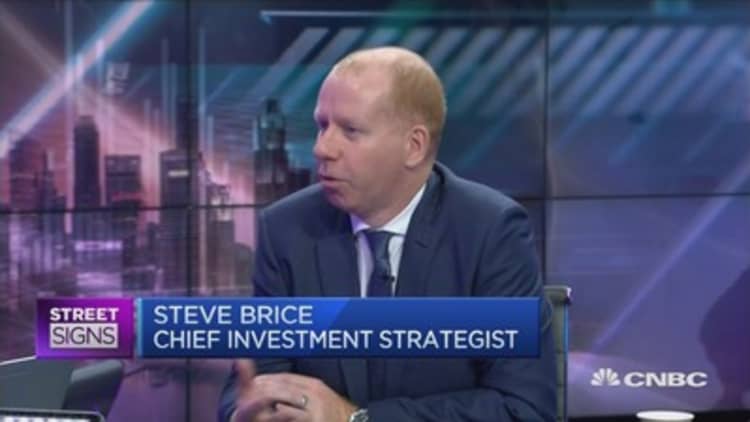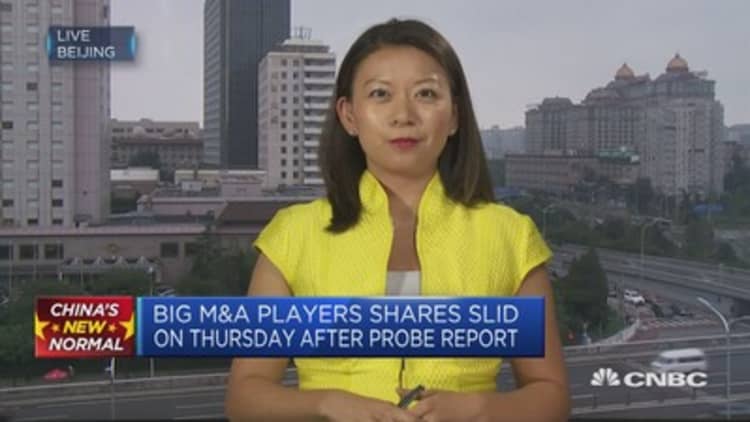
Chinese authorities are at it again. This time, its banking regulator is investigating how the country's top overseas deal makers are borrowing money, according to multiple media reports.
It's a move that connects and highlights a number of risks that plague China at the moment. Here's a look at the related challenges.
Developing markets
China's stock markets are notoriously volatile and largely led by less-savvy retail investors who sometimes trade on wild speculation. While global markets are often affected by rumor-mongering, mainland markets are still developing and so are characterized by giant swings. For instance, trading is automatically halted if a stock moves up or down by 10 percent. That's a way to smooth out less mature markets, but it at times does little to calm volatility and inspire investor confidence.
On Thursday, shares of Wanda Film tumbled nearly 10 percent before trading halted, and the firm later denied rumors that banks had been ordered to dump company bonds in a statement posted online. It wasn't until Friday that the company issued stock exchange filings.

China is interested in attracting more foreign investors as it has expanded "stock connect" programs to give more access internationally to mainland markets. And just this week, domestic stocks finally won inclusion in MSCI's benchmark emerging markets index, but experts say market transparency and regulation remain an issue.
Debt clock ticking
Regulators are looking at how top Chinese companies have borrowed money, and how they've structured massive deals like the snapping up of marquee assets from Legendary Entertainment to the Waldorf Astoria hotel. Allegations have flown in recent months over how these firms, like conglomerate Wanda and insurer Anbang, are financed, how much risk their purchases entail and whether the firms are over-leveraged.
Corporate credit growth in China has been "excessive," the IMF wrote in a recent paper. But "investment efficiency has fallen, and the financial performance of corporates has deteriorated steadily, affecting asset quality in financial institutions," researchers wrote.
Capital outflows
China has upped its already-strict capital controls in efforts to keep more money onshore, especially as Chinese firms went on a massive overseas shopping spree. All that money fleeing China added further strain to the economy — and more downward pressure to the yuan.
Political risks
This is a big year for Beijing — in about a week, China will hit the 20th anniversary of the handover of the special administrative region of Hong Kong back to the mainland; in the fall, there will be a twice-in-a-decade leadership shuffle.
Leading up to this, officials are interested in maintaining as much calm and stability as possible, and tackling any real or perceived risks to the markets and the economy are aimed at combating volatility.


